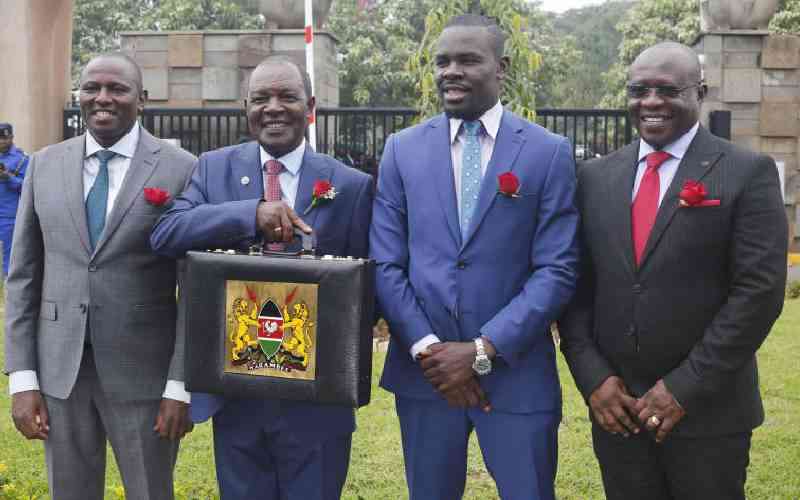×
The Standard e-Paper
Join Thousands Daily

Majority Leader in the National Assembly Kimani Ichungwa, Treasury CS Njuguna Ndung'u, Majority Chief Whip Silvanus Osoro and Kilifi North MP Owen Baya at parliament on June 15, 2023, for the presentation of the 2023/2024 Budget Statement. [Elvis Ogina, Standard]
President William Ruto's mission to increase revenue collection through the Finance Bill 2023 might be the starting pistol for the opposition to discredit the government's plan to actualise Kenya's largest budget ever.